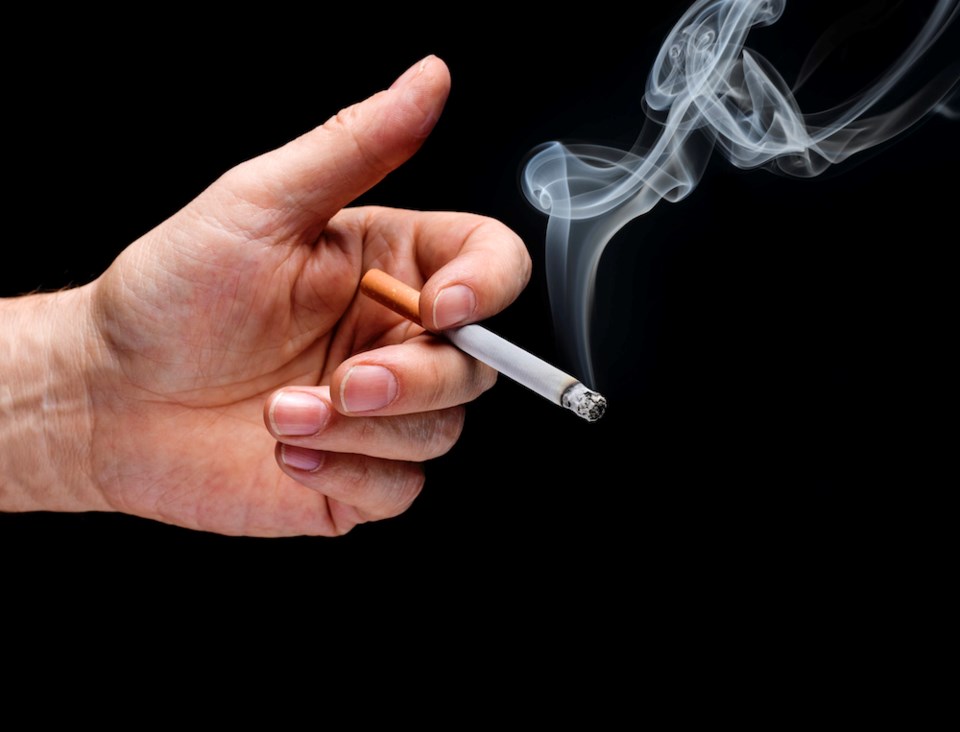A Port Coquitlam couple won the battle, but not the war, in the fight to stop their neighbour from smoking in his condo.
The BC Civil Resolution Tribunal (BCRT) recently ruled that a man who allegedly violated his strata's anti-smoking bylaw multiple times must pay the couple a total of $618 for damages and fees.
The money is to reimburse them for an air purifying device and future electricity costs to clear out smoke that was entering their apartment from electrical outlets and baseboards.
Mithila Karnik and Karan Adarkar took their neighbour, Kazimierz Kulasik to the BC Civil Resolution Tribunal to get him to stop smoking in his unit at 2191 Shaughnessy St.
Karnik, who is also running for Port Coquitlam council in the 2022 municipal election, sought health damages as well as reimbursement for an air purification device and electricity to run the machine.
The case comes as the BCRT warns claimants that some cases may be affected by BC Government Employees' Union job action.
Alleged violations against anti-smoking bylaw
In the Aug. 15 decision posted online, the couple claimed the smoke was entering their apartment via electrical outlets and baseboards and "causing a nuisance and a health hazard" for them and their young child.
Evidence produced showed that Kulasik was fined $200 on 11 occasions for allegedly smoking in his unit, in violation of the strata bylaw, and was sent letters alleging that he smoked in his strata lot on 38 separate occasions in January 2022.
In his defence, Kulasik claimed that while he has paid $1,400 in fines, he has only smoked in his condo once since Jan. 3, which was on May 15.
A statement corroborated by a friend said Kulasik doesn't smoke in his apartment any more and leaves his cigarettes in his truck.
Kulasik also claimed to being "harassed" by the applicants, who he said pushed passed him looking for cigarettes and once called the police with their smoking complaints.
But in assessing damages, tribunal member Chad McCarthy accepted testimony from another condo owner who supported Karnik and Adarkar's claims.
In a written statement, the condo owner noted that on April 28, they noticed an "increasing cigarette smoke odour" in the couple's bedroom when a wet towel was removed from baseboards on a wall shared with Kulasik.
"I find SB's statements are more persuasive than AJ’s, as they are based on direct personal observations of Mr. Kulasik's smoking practices and the cigarette odours emanating from the shared strata lot wall," McCarthy stated.
'Too speculative' to apply health damages: tribunal
"Having weighed the evidence, I find it is more likely than not that Mr. Kulasik has continued to smoke in his strata lot in 2022 in violation of bylaw 1.15, including at minimum on April 28, 2022 and May 15, 2022," McCarthy added.
In his decision, McCarthy ordered Kulasik to stop smoking in his strata lot and to reimburse the couple for the air purification device and half the fees for the tribunal application for a total of $618, including $503 for the damages.
However, he dismissed the couples' claim for unspecified health hazard and smoke prevention damages.
"The applicants submitted no evidence showing the concentration of second-hand cigarette smoke in their strata lot. They submitted no medical evidence detailing the likely health effects of that amount of smoke. They also submitted no medical evidence showing they suffered any health problems from the smoke, or that they spent anything to address such health problems or hazards, other than the air purifier discussed above," McCarthy stated.
'I find that it would be too speculative to award damages for a vague “health hazard” that is not supported with adequate evidence."





